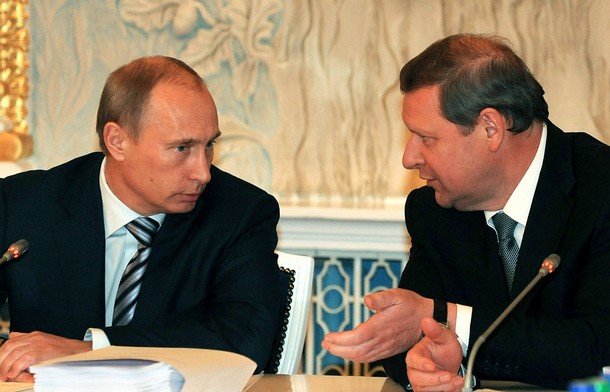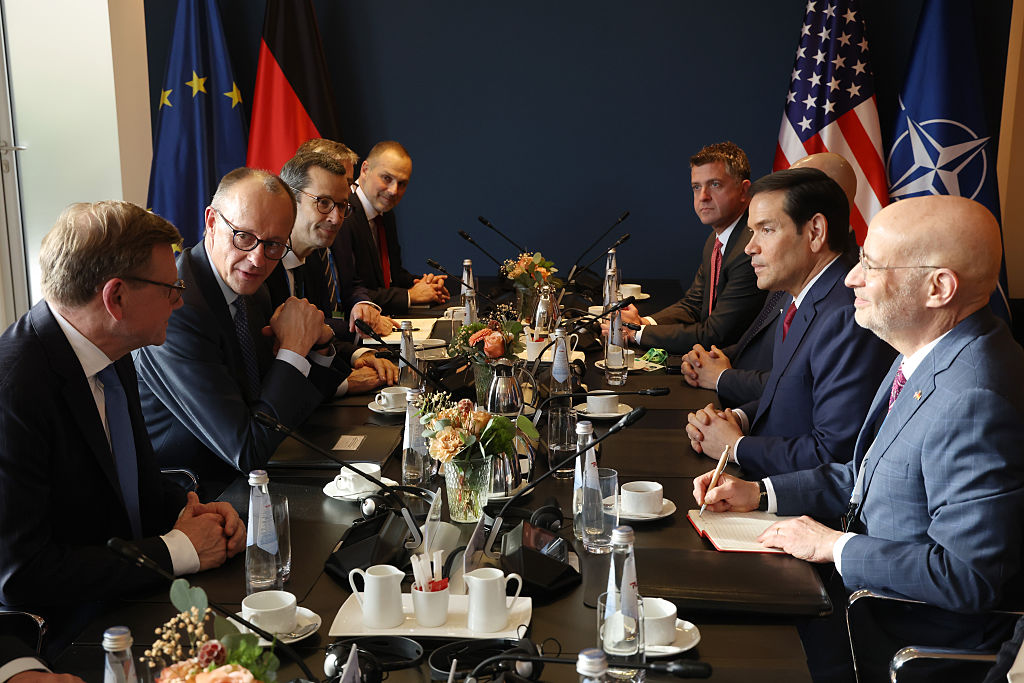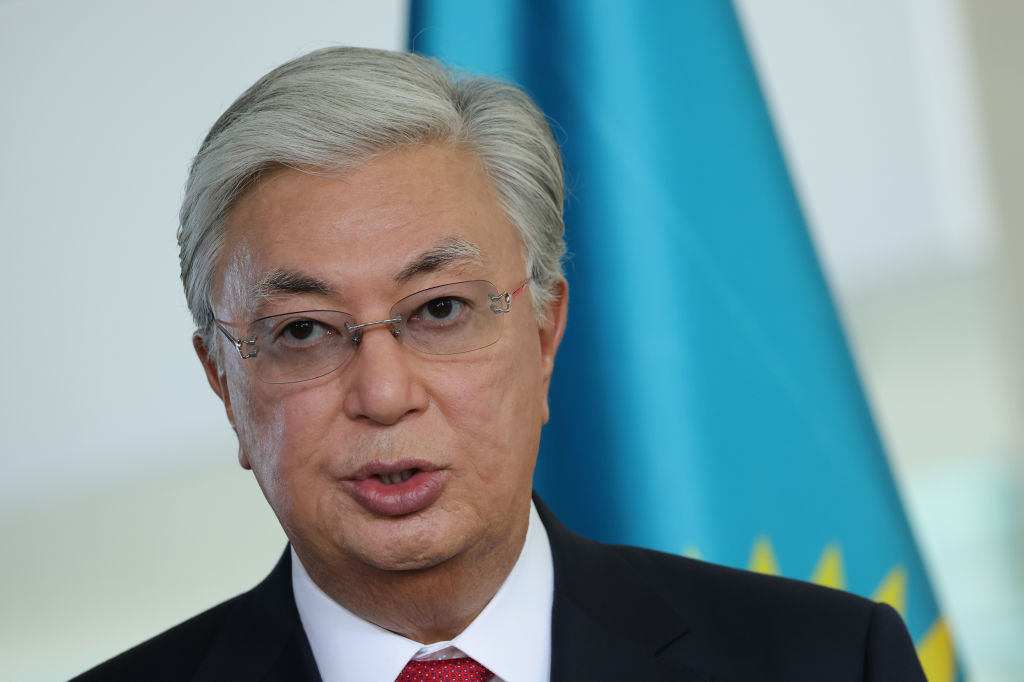
Lukashenka Plays Hard Ball with Russian Leadership
Lukashenka Plays Hard Ball with Russian Leadership
On May 29 Belarusian President Aleksandr Lukashenka instructed his ministers not to "whine and weep" when things did not work out with Russia but to "look for better luck in other parts of the world" (www.gazeta.ru, May 29). He was obviously disappointed after the meeting in Minsk with Russian Prime Minister Vladimir Putin, which was conducted, in his own words, in an "absolutely friendly tone" but confirmed Moscow’s readiness to grant Belarus new credits only in rubles and not U.S. dollars (Kommersant, 29 May). Never constrained by political correctness, Lukashenka was careful not to criticize Putin but instead lashed out against Russian Finance Minister Aleksei Kudrin, who had allegedly tried to "incite panic" in Belarus. Kudrin’s crime was the clearly expressed opinion that the current economic policy will bring Belarus to default sooner rather than later, and that – in Lukashenka’s opinion – means that he "completely joined ranks with our hoodlums who squeak here for Western money" (RIA-Novosti, May 29).
This emotional diatribe was probably well-calculated, as Putin found himself pushed into providing defensive assurances that Russia will not let Belarus down. First Prime Minister Igor Shuvalov also clarified that the few remaining difficulties in bilateral relations will be resolved in a "quiet and constructive way" (RIA-Novosti, May 29). Lukashenka is certainly well aware that the consequences of financial insolvency which Belarus is facing will not be resolved without massive aid from Russia, but he assumes that Putin cannot afford any further deterioration of this crisis since his main aim lies elsewhere: he seeks to bring Ukraine to the brink of bankruptcy (www.lenta.ru, May 29). Exploiting Putin’s well-known obsession with the protracted gas quarrel with Ukraine, Lukashenka is playing hard-ball in a very weak position, and he hopes to make Russia pay again for his "loyalty."
Indeed, Putin felt obliged to correct Kudrin’s "liberal views" and to praise the Belarusian economic performance (www.newsru.com, May 28). The real problem, however, cannot be addressed by wasting another $500 million on Lukashenka -who never feels any need to show gratitude. President Dmitry Medvedev in his recent budget address admitted that the Russian recession is much deeper than expected at the start of the year. A fresh portion of economic statistics immediately confirmed that the situation was even worse with the decline in GDP reaching 10.5 percent in April, forcing another adjustment to the budget deficit forecast for 2009 -increased to 9 percent of GDP from 7 percent promised by the president (Nezavisimaya Gazeta, May 27). As the oil prices climbed above $60 per barrel, some new hope appeared on the Russian stock exchange, but the contraction of investments in the "real sector" is so severe that there are few reasons to expect the resumption of growth during 2010.
Seeking to silence the "pessimists," Medvedev demanded that "his comrades" avoid speculation about Russia not emerging from the crisis for 50 years – or look for other jobs. In fact, it was Kudrin who first mentioned that Russia might not see favorable external economic conditions within as much as the next 50 years, as it had enjoyed in 2000-04 (Vremya Novostei, May 27). Apparently, Lukashenka was targeting exactly that potential split within the Russian government by attacking Kudrin, but on May 29 "anonymous sources" in the Kremlin offered assurances that no change to the key economic positions was envisaged (www.newsru.com, May 29).
Both Putin and Medvedev seek a suitable scapegoat for the unfolding economic disaster, but Kudrin hardly wants to be cast in the role – and he is capable of convincing his masters that without his firm control over the financial reserves the competing oligarchic lobbies might tear apart both the budget and the country (www.expert.ru, May 29). The only way out for the ruling duo, understandably reluctant to preside over the escalating discontent, will be reshuffling the corps of governors in the expectation that most protests will remain local. Many regional budgets, however, are showing far greater deficits than the federal budget, suggesting that the governors are helpless to deliver any support to the struggling industries or indeed any relief for the most affected social groups (New York Times, May 25). Hence, the rapid erosion of public confidence in this layer of power within the bureaucratic pyramid, built for the purpose of distributing and consuming the ever-increasing petro-rent (www.grani.ru, May 26). Governors themselves are eager to blame Moscow for the lack of attention, consequently currently only 29 percent of Russians believe that the government will improve the economic situation, while 32 percent consider that it will fail – and this concerns the government led by Putin (www.levada.ru, May 29).
Given the depth of the economic decline it is quite remarkable that the experimental two-headed power structure, designed by Putin for a problem-free transition period still functions without any visible fissure. The main precondition for this performance was the capacity to increase expenditures from the state budget despite sharply falling revenues. However, such an approach cannot be sustained beyond this year. An informative reflection was provided by the twentieth anniversary of the Congress of People’s Deputies that Mikhail Gorbachev saw as a major step forward in revitalizing the Soviet Union – and that in fact hastened its sudden dismantling (Nezavisimaya Gazeta, May 27). The lesson that Putin and Medvedev have apparently drawn from that breakthrough in glasnost is to oppose any public debate on the causes and consequences of a crisis that punishes Russia with greater force than many other economies. This might help to preserve deceptively high approval ratings for a few more months, but it inevitably generates hidden pockets of anger and fault-lines within the privileged and suddenly under-funded elites. The best hope for Putin and his courtiers is that a nasty political spasm will first erupt in either Ukraine or Belarus, and that its impact will work in their favor.


